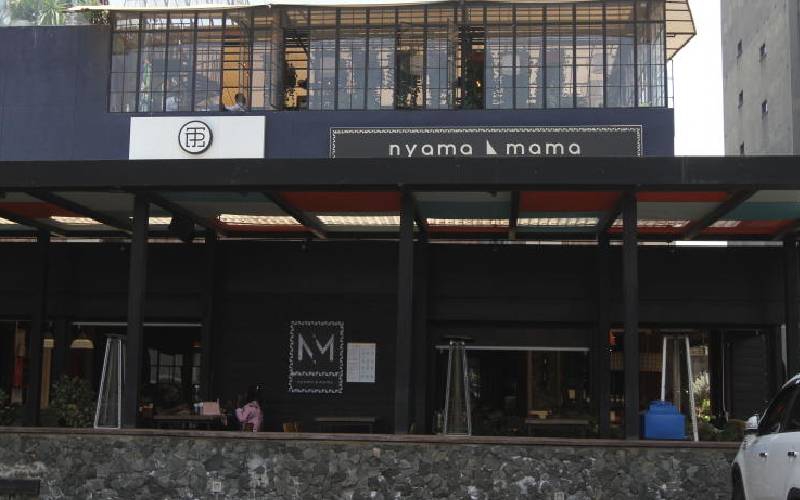
The Nyama mama centre in Yaya.[Elvis Ogina,Standard]
Ninaa Shanghavi ‘ mama’ and her husband Jay Shanghavi would meet in the UK and fall in love. Then Jay, a Tanzanian, would follow Ninaa back to Kenya where in 1986, they would set up a tours and travel company. But just before the West Gate terror attack in 2013, they sold their share of the business to their business partners who were keen on expanding. The couple would channel the sale proceeds to enter the restaurant business. Today, they own a total of six restaurants; two outlets of Nyama Mama which is their most famous brand, Blue Door restaurant, Central Kitchen and two Chinese restaurants-- Mr. Yao and The Pan Asian Yao. Ninaa shares their business journey and the ravages of the pandemic to the business.